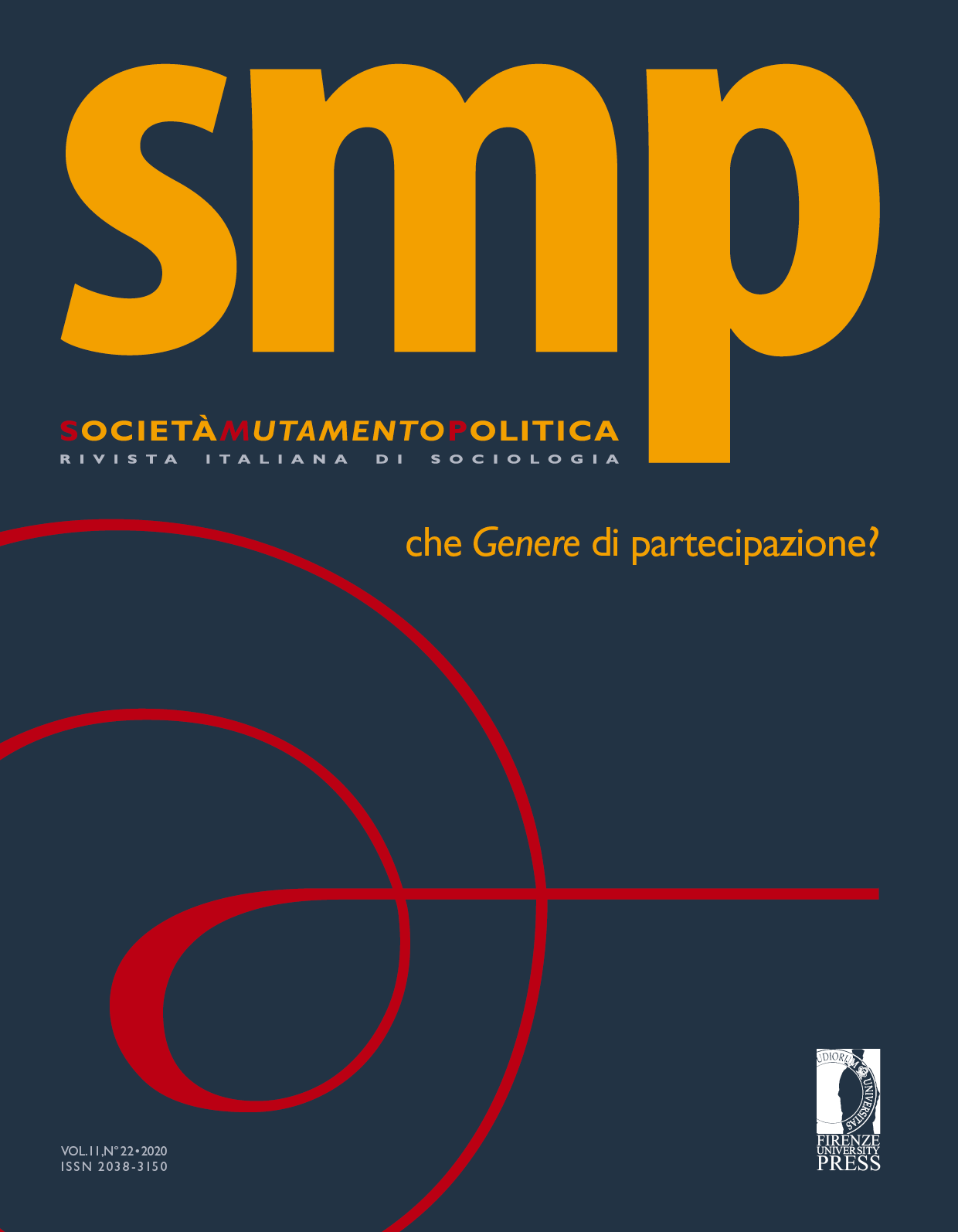Published 2021-03-01
Keywords
- Gender gap,
- partecipazione,
- modelli di welfare,
- effetti contestuali
How to Cite
Abstract
This study proposes an analysis on the theme of gender differences with respect to participation in political and social life. Specifically, it takes into account the findings of traditional, revisionist and radical studies, proposing an updated and gender sensitive interpretation. In this way, we can distinguish between cause, civic and campaign oriented forms of participation, selecting among the different types and classifications proposed by studies oriented to the analysis of female involvement. The hypotheses proposed refer to the possible effects of the availability of resources (time, money, education), socialization (children, marriage, religion, divorce), motivations (trust, self-direction, information) and values (materialist, solidal, liberalist ethics). Moreover, the dynamics linked to opportunities and contextual constraints are kept under control, specifically linked to welfare policies and availability of resources to guarantee equity. A further hypothesis concerns effects that discriminate not only with respect to gender but also with reference to the mechanisms of mobilization. The analyses, carried out with data from the wave 2018 of the European Social Survey, demonstrate the substantial validity of the hypotheses and, in particular, differences emerge with respect to the type of participation and strong impact of contextual dynamics. Finally, partial confirmations of differences in mobilisation mechanisms with respect to gender emerge.


